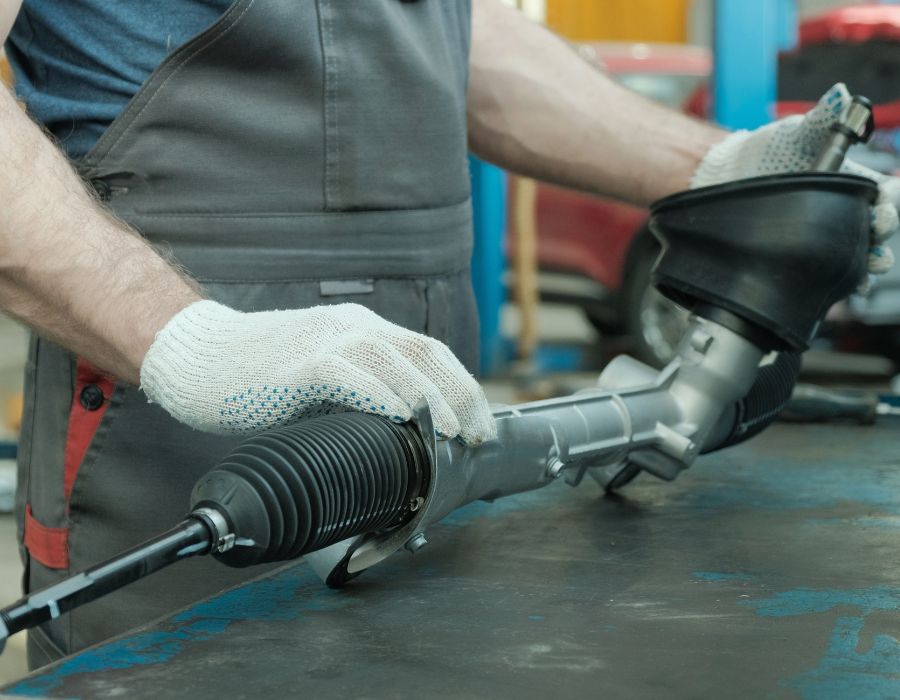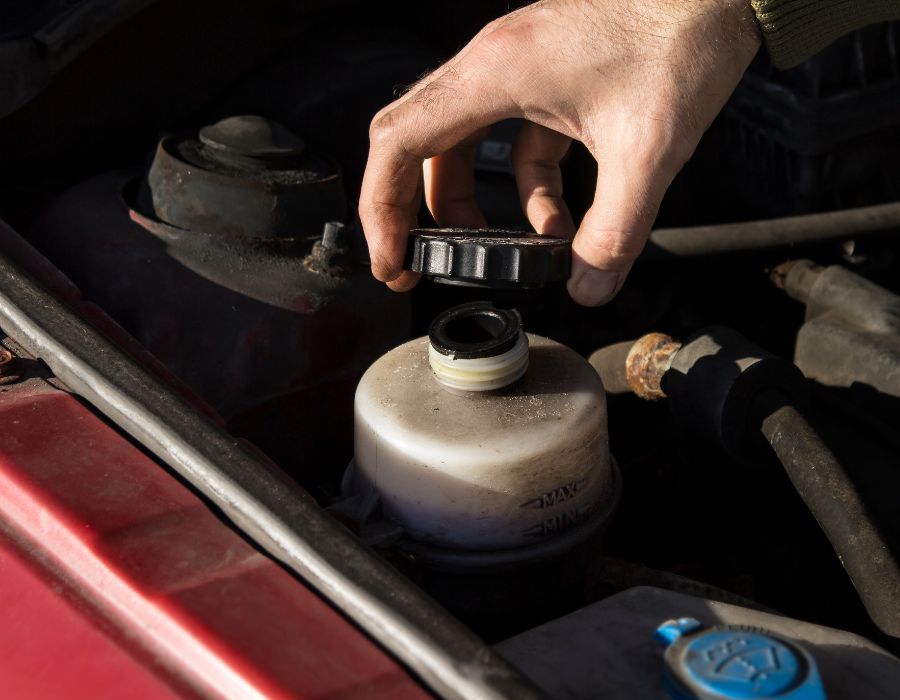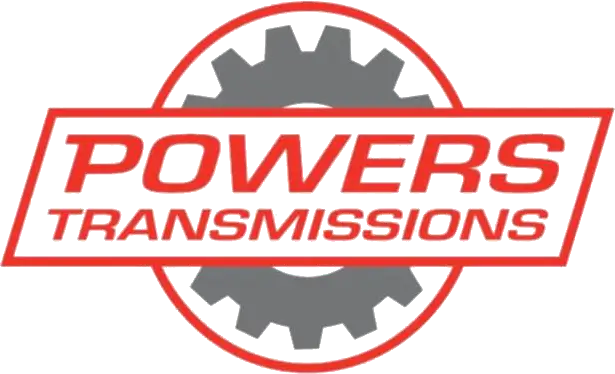Power Steering Repair in Lexington, KY
- CELEBRATING 46 YEARS
- Family Owned & Operated
- All Makes & Models
- CELEBRATING 46 YEARS
- Family Owned & Operated
- All Makes & Models
Contact Us
Power Steering Repair - Easy Steering You Can Count On
Linda first noticed her steering getting stiff when parallel parking downtown. Within a week, turning her steering wheel felt like an arm workout, especially at low speeds. When she brought her car in, we found her power steering pump was failing and had contaminated the entire system with metal particles. After flushing the system and installing a new pump, Linda’s steering felt effortless again. “I forgot how easy steering should be,” she said.
Our Services
Contact Us
What Your Neighbors Are Saying About Us
They truly care about offering the right service and doing it at a very fair price. They were patient to explain everything in detail and had my car fixed same day. Their honesty and great service will keep me coming back for all of my car needs. A solid repair shop that will be my first choice going forward.
Could not be happier with the recent service I received at Powers Transmissions! David and his team are very knowledgeable and pleasant to work with. It’s nice to have the peace of mind knowing everything is done correctly. Very happy with the experience and highly recommend!
What stood out to me was their willingness to listen to my concerns over the phone and provide an accurate estimate for the repair timeline. Unlike some places, they didn't try to deceive me just to get me in the door. You can genuinely sense their passion for their work and helping customers.
Wow, excellent job. My HUMMER H2 runs so good. Now the Transmission can pull a barn down I have known Mr. powers for years. He is a stand up guy if he says something you can take it to the bank. I'm very happy.
Powers Transmissions took over and had my car done in less than a week. They worked with my warranty company and kept me updated on everything that was happening. Completely professional and competent unlike the first place I went! Thank you for all your help!

How Power Steering Works
Your power steering system uses hydraulic pressure to assist your steering efforts. The power steering pump, driven by your engine, pressurizes fluid that flows to the steering gear or rack when you turn the wheel. This hydraulic assistance makes steering much easier, especially at low speeds and when parking.
Modern vehicles also use electric power steering (EPS) systems that use an electric motor instead of hydraulic pressure to provide steering assistance. Both systems make driving safer and less tiring.
Signs Your Power Steering Needs Repair
- Hard Steering: If your steering wheel becomes difficult to turn, especially at low speeds or when parking, your power steering system needs attention.
- Whining Noises: A high-pitched whining sound when turning, especially when cold, often indicates power steering pump problems.
- Fluid Leaks: Red, brown, or clear fluid puddles under your parked car may be power steering fluid leaks.
- Jerky Steering: If your steering wheel jerks or feels inconsistent when turning, you might have air in the system or worn components.
- Squealing Sounds: Squealing when starting your car or turning can indicate a loose or worn power steering belt.
- Foamy Fluid: If your power steering fluid looks foamy or has bubbles, air has entered the system.
- Burning Smell: A burning smell while driving might indicate overheated power steering fluid from an overworked pump.
Common Power Steering Problems
- Pump Failure: The power steering pump can wear out, losing its ability to build proper pressure for steering assistance.
- Fluid Leaks: Seals in the pump, steering gear, or hoses can fail, causing fluid loss and system failure.
- Belt Problems: A loose, cracked, or broken power steering belt prevents the pump from operating properly.
- Rack and Pinion Issues: The steering rack can develop internal leaks or wear that affects steering feel and response.
- Hose Deterioration: Power steering hoses can crack, burst, or develop internal restrictions that affect system performance.
- Contaminated Fluid: Dirty or contaminated power steering fluid can damage pumps and other system components.


Our Power Steering Repair Process
When you bring your vehicle in with steering problems, we perform comprehensive system diagnosis:
- System Testing: We test power steering pressure and flow to identify pump and system problems.
- Leak Detection: We inspect all hoses, connections, and seals for leaks that could cause system failure.
- Fluid Analysis: We check power steering fluid condition for contamination, overheating, or wrong fluid type.
- Belt Inspection: We examine the power steering belt for proper tension, wear, and alignment.
- Component Testing: We test steering rack, pump, and other components for proper operation.
- Complete Repair: We replace worn components, flush contaminated fluid, and verify proper system operation.
Types of Power Steering Systems
- Hydraulic Systems: Traditional systems using engine-driven pumps and hydraulic fluid for steering assistance.
- Electric Power Steering (EPS): Newer systems using electric motors for assistance, providing better fuel economy and easier maintenance.
- Electro-Hydraulic: Hybrid systems that use electric pumps instead of engine-driven pumps for hydraulic assistance.
- Variable Assist: Systems that provide more assistance at low speeds and less at highway speeds for better control.

Power Steering Fluid Types
- ATF (Automatic Transmission Fluid): Many vehicles use ATF for power steering, but specific types matter.
- Dedicated Power Steering Fluid: Some vehicles require special power steering fluid that’s different from ATF.
- Synthetic Fluids: Premium power steering fluids that resist breakdown and provide better performance.
- Universal Fluids: Some fluids claim to work in all systems, but it’s best to use manufacturer-specified fluid.
Using the wrong fluid type can damage seals and cause expensive repairs.
Seasonal Power Steering Considerations
- Winter Performance: Cold weather thickens power steering fluid, making steering temporarily difficult until the fluid warms up.
- Summer Stress: Hot weather and stop-and-go driving can overheat power steering fluid and accelerate system wear.
- Temperature Effects: Extreme temperatures affect seal flexibility and can cause leaks in marginal systems.
- Fluid Changes: Power steering fluid should be changed periodically, especially in severe driving conditions.
Preventing Power Steering Problems
- Regular Fluid Checks: Monitor power steering fluid level and condition during routine maintenance.
- Proper Fluid: Use only the manufacturer-specified power steering fluid type.
- Belt Maintenance: Keep the power steering belt properly tensioned and replace it when worn.
- System Flushing: Periodic power steering fluid changes remove contaminants and extend component life.
- Avoid Dry Steering: Don’t turn the wheel when the vehicle isn’t moving, as this stresses the system unnecessarily.
Emergency Power Steering Loss
If your power steering fails while driving:
- Stay Calm: You can still steer the vehicle, but it will require much more effort.
- Reduce Speed: Slower speeds make manual steering more manageable.
- Use Both Hands: Grip the steering wheel firmly with both hands for better control.
- Avoid Sudden Movements: Make gradual steering inputs to maintain control.
- Get Service: Have your vehicle towed to avoid damaging other components by forcing the steering.

Electric vs Hydraulic Power Steering
- Electric Advantages: Better fuel economy, fewer maintenance requirements, variable assist levels.
- Hydraulic Advantages: Proven reliability, better road feel, consistent assist levels.
- Conversion: Converting from hydraulic to electric power steering is usually not practical or cost-effective.
- Maintenance Differences: Electric systems need less maintenance but require specialized diagnostic equipment for repairs.
Cost Considerations
Power steering repair costs vary based on the problem:
Fluid and Filter: $100-200 for basic service Belt Replacement: $75-150 for belt and labor Pump Replacement: $300-600 including labor Rack and Pinion: $500-1,200 for rack replacement Hose Replacement: $150-300 depending on which hoses need replacement
Catching problems early prevents more expensive component damage.


Power Steering Noise Diagnosis
Different noises indicate different problems:
Whining: Usually indicates pump problems or low fluid Squealing: Often a belt problem or pump bearing issue Groaning: May indicate contaminated fluid or air in the system Clicking: Could indicate worn steering joints or rack problems
Why Choose Our Power Steering Service
We’ve been repairing power steering systems for over 15 years. Our technicians understand both hydraulic and electric power steering systems and have the diagnostic equipment to identify problems accurately.
We use quality parts and fluids that meet manufacturer specifications. Whether you need a simple belt replacement or complete rack and pinion replacement, we provide reliable service that restores easy steering operation.
Schedule Your Power Steering Service
Don’t struggle with hard steering or ignore power steering noises. If your steering feels different, makes noise, or you notice fluid leaks, give us a call for a power steering system evaluation.
We provide thorough diagnosis and honest estimates. Early detection and repair of power steering problems prevents more expensive damage and ensures safe, comfortable driving. Easy steering isn’t a luxury – it’s a safety feature that helps you maintain control of your vehicle.

Areas We Serve
- Winchester Lexington
- Lane Allen Lexington
